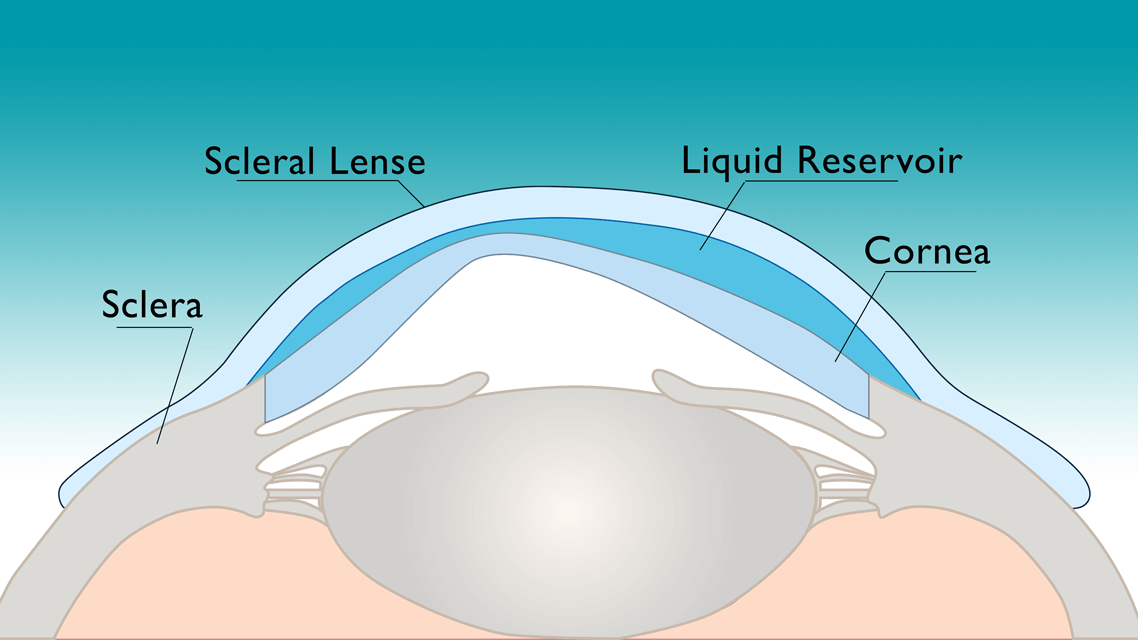SCLERAL CONTACT LENSES
The sclera is the white outer coat of the eye. Scleral contact lenses are thin rigid gas permeable (RGP) lenses that are supported by the sclera. Superior comfort, stability, and vision are the results of the support provided by the sclera and the optics of this innovative lens material.
Unlike their smaller corneal counterpart RGP or HGP (hard gas permeable) corneal lenses, scleral RGP lenses fit beneath the upper and lower lids. This fit gives them comfort equal to and often surpassing a soft lens.

YOU HAVE OPTIONS WITH CONTACT LENSES
One-size does not fit all when it comes to contact lenses. There are so many options available today. Click below to learn more or contact us today.
Scleral contact lenses were the first contact lenses invented in 1887 and were made of glass. Plastics suitable for contact lenses were invented in the 1930s. It wasn’t until new gas permeable materials were developed in the 1990s that scleral lenses began making strides for the correction of many challenging eye problems. From 2010 to the present, the newest materials allow as much oxygen through the rigid material as advanced soft lenses.
Today’s scleral lenses are making a comeback. They offer exceptional safety, comfort, and sharpness of vision and provide for a wide variety of conditions. Prescriptions are available in scleral designs for normal corneas as well as disfigured, diseased, and irregular corneas.
Scleral lenses are ideal for low to high astigmatism in all prescriptions. They even come in multifocal designs for presbyopia. These lenses have been a vision saver for many patients previously intolerant of soft or rigid contact lens designs.
Some of the conditions for which Scleral contact lenses are a good fit are the following:
- Astigmatism: No need to worry about lens rotation!
- Presbyopia (bifocal designs)
- Keratoconus
- Pellucid corneal degenerations
- Dry Eye
- Sjogren’s Syndrome, Stevens-Johnson syndrome, and neurotrophic keratopathy
- Corneal scar tissue obscuring vision from surgery, abrasions, ulcers, or trauma.
- Corneal transplants
- Post RK (Radial Keratotomy)
- Post-LASIK or PRK.
- Allergic eye conditions
- Sports: The lens is protected by the lids and does not dislocate as RGP corneal lenses or soft lenses
YOUR VISION HEALTH IS OUR PRIORITY
Don’t wait until it’s too late. Your eyes are an important aspect of your overall health. Give us a call today or book an appointment online.
